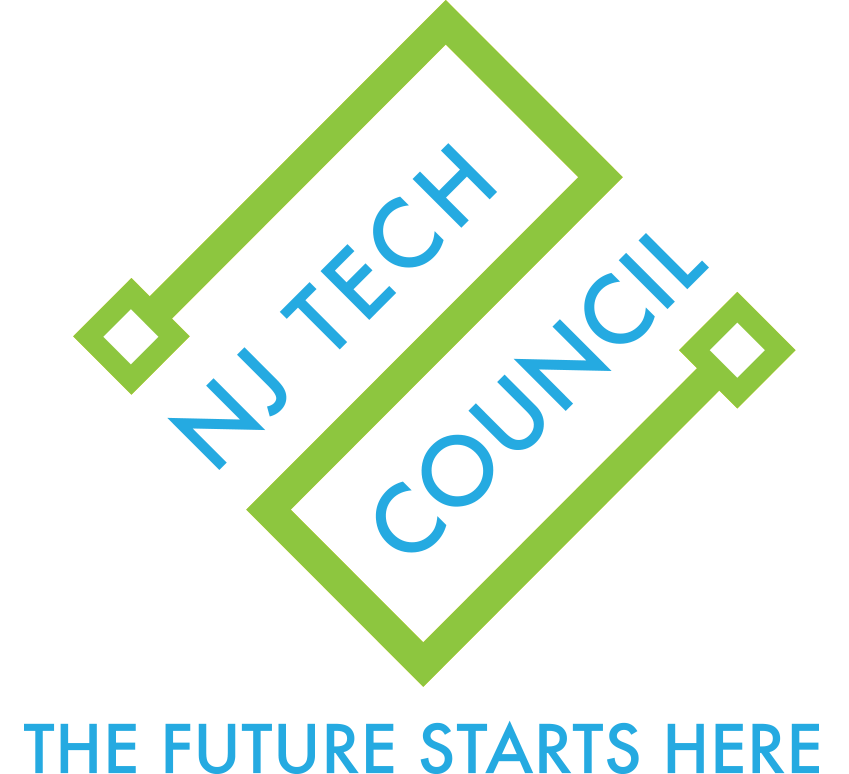Three out of four U.S. adults (75%) have never heard of the term “gig economy,” according to the results of a new American Staffing Association Workforce Monitor® survey conducted by Harris Poll. Roughly three in 10 Americans (29%) don’t know how to define the term, and 31% cannot identify specific types of gig work.
Without a definition, most U.S. adults (85%) say they may have performed work one might consider “gig” at some point in the past. However, after being given a definition that describes gigs as various forms of small-project, freelance assignments typically facilitated by an internet platform or app, that percentage drops to 20%, the survey results show. A large majority of Americans (78%) see the gig economy as a new way to describe the kind of nontraditional work arrangements that have been around a long time. More than half (53%) disagree that the U.S. will evolve to predominantly a gig economy within the next 20 years.
To read to full article, please follow link below:
https://d2m21dzi54s7kp.cloudfront.net/wp-content/uploads/2017/05/ASA-Workforce-Monitor-Gig-Economy-Summary-Report.pdf
James F. Lynch PhD, MBA – Regional Personnel Services ©2017
Have you ever made the wrong hire?
There are 3 significant, but sometimes intangible, issues to consider when hiring – time, money and morale. I will address time & money here, and morale in next article.
According to a recent Society for Human Resource Management’s (SHRM’s) Human Capital Benchmarking Report, it can cost up to $4,129 (cost-per-hire) to land a new employee. In the current economic times, however, companies can’t afford to miss out on great talent, and perhaps more importantly, make the wrong hire.
Time kills deals, and recruiting momentum is no different. Companies that drag out the process, usually can end up with less-then-perfect hires at higher prices. Sensing a prolonged hiring process, top performers will drop out of the pool within days or weeks, for example, thus reducing the quantity and quality within the talent pool. Only individuals with fewer options or little time to seek alternatives, will remain actively engaged in the process. And of those candidates who stay in the process, cost to hire them can increase substantially as a result of negotiating higher offers in order to outbid the competition.
By outsourcing recruiting to an experienced recruiting firm, a company can drastically improve the speed, reduce costs and drive successful hiring campaigns. Recruiting firms are faster and more efficient, in part, because they recruit every day. The best recruiting firms, however, must also stay on top of latest tools & techniques. And finally, they must stay abreast of the changing needs of their clients, as well as, the daily shifts in the marketplace of top talent.
James F. Lynch PhD, MBA, CSP
President
James F. Lynch PhD, MBA – Regional Personnel Services ©2017
Have you ever made the wrong hire?
Do you realize the real costs to your organization?
To name a few, there are the sunk costs of the hire, plus the cost to re-start the process, potential litigation in dismissing the employee, diversion of time & resources and the organizational fatigue to start the hiring process again, and finally, the negative impact on your company’s morale and reputation. You can’t afford to make another poor hire.
Even before the organization accepts that they have made the wrong hire, it can absorb up to 17% of a Manager’s time to manage a poor performing employee. That could amount to anywhere between $10,000 or more per year, not including lost productivity of the Manager. Add all this up and the real cost of the wrong hire could be in the tens to hundreds of thousands of dollars, excluding intangibles such as company reputation, morale and lost productivity.
How to Avoid the Wrong Hire…
Competition for top talent is fierce. Hiring Managers say with consistency, “I need smart, motivated and resourceful people.” The question is, how does one uncover these traits?
While the resumes list all the candidate’s accomplishments, these are self-reported and a retrospective view of past performance within a different company. Will this new hire be successful in the new company with its unique management styles, culture, challenges, systems, goals and expectations?
A key predictor of a candidate’s success, we have found, is their attitude. To succeed in today’s ambiguous workplace, candidates must bring a high-degree of resourcefulness and ability to quickly adapt to change. Every company knows, no matter the size or industry, it needs to be agile in this ever-changing economy. Attracting top talent doesn’t always mean the smartest, but those with outstanding attitudes, high-degree of resourcefulness and adaptiveness.
The interview is not only to verify the accomplishments listed on the resume, but to access the candidates’ attitude toward their future and their career within the company seeking to hire them. This is one way experienced recruiters find the stars in the new and evolving workplace!
James F. Lynch PhD, MBA, CSP
President
James F. Lynch PhD, MBA – Regional Personnel Services ©2017
Every day I get to speak with many business owners and decision-makers across many industries. I consistently hear the same staffing problems, “I need smart, motivated and resourceful people.” The question is, how does one uncover these traits from the hundreds of resumes received each week?
While the resumes list all the candidate’s wonderful accomplishments, these are a retrospective view of past performance. The question is, will this person be successful in the new company with its unique culture, clients, challenges, requirements, etc.
A key predictor of a candidate’s success, I have found, is their attitude. The reason attitude is so important, I feel, is because it can be a key driver of one’s resourcefulness. In order to succeed in today’s ambiguous workplace, candidates must bring a high-degree of resourcefulness. They question “why are we doing it this way?”
“why are we doing it this way?”
Attitude assessments must be part of the overall interview process. There are standard on-line assessments, however, an experienced recruiter with great interviewing skills and instincts, can uncover true attitude, as well as, the underlying personality traits that drive that attitude. Behavioral interviewing with specific conversations into particular situations, and experiences can uncover surprises –good and bad.
In terms of resourcefulness, many of the newly-minted graduates seem to fear failure. Failure should be seen as a learning opportunity in any organization. The key word here is to “learn” from it and to share it with others so that the company can become more competitive as an organization. In this new workplace, star employees thrive on ambiguity, and more importantly, they see it as an opportunity to garner resources in new ways to get the job done, better! Failure is all part of this process.
The interview is not only to verify the wonderful accomplishments listed on one’s resume, but to access the candidates’ attitude toward their future, their career, and the opportunity as presented to them. This is one way experienced recruiters find the stars for the new world!
James . Lynch PhD, MBA
Regional Personnel is a privately-owned, boutique staffing and recruiting firm located in Hunterdon County providing service throughout New Jersey. As trusted, ASA-certified staffing professionals with 31+ years of combined staffing and employment experience, we match top talent with businesses of all sizes. We provide a unique and personal experience that no other staffing agency in the area can match.
James F. Lynch PhD, MBA – Regional Personnel Services ©2016
Eighty-eight percent of employees are satisfied with their jobs, according to a 2015 survey of 600 part-time and full-time employees by the Society for Human Resource Management. That figure is higher than at any time since 2005. Ninety percent of Baby Boomers say they are satisfied with their job, followed by Generation X (88%), and Millennials (86%).
For the second year, the most important contributor to employee job satisfaction was “respectful treatment of all employees at all levels” (cited by 67 percent of respondents). Said Esen, “Employees consider culture and connection to be of utmost importance. Feeling appreciated for their time and efforts creates a bond between employees, management and their organization.
Full report: https://www.shrm.org/Research/SurveyFindings/Articles/Documents/2016-Employee-Job-Satisfaction-and-Engagement-Report.pdf
James F. Lynch PhD, MBA – Regional Personnel Services ©2016
Current Staffing Options in New Jersey. Tune into https://lnkd.in/bAVSi4s, this Thursday (3/31) at noon to listen to Jim Lynch (President, Regional Personnel) discuss staffing in New Jersey. www.hunterdonchamberradio.com during Jim Gano’s (@jimgano83) segment “Takin’ Care of Business.”
James F. Lynch PhD, MBA – Regional Personnel Services ©2016
The first hours, days and weeks of any new job is filled with anticipation and stress – for employee and employer. Increasing the probably of success depends on being resourceful and taking the initiative on Day One!
Who is invested in my success…?
My advice to any new hire is to identify who is my “go to” person for questions. The answer to this question forms a single point of accountability (“contract for your success”) between new employee and manager.
Point person is identified, now what….?
The new hire and manager should strive for complete clarity regarding any task or project. Communication and work styles will be different, but there needs to be a common understanding of what is expected. Work quality & timeliness can be maximized with one phrase:
“Clarification + Feedback + Expectation (CFE) = No Surprises”
How does this dynamic work…?
This feedback loop works through open & frequent communication. A new hire can demonstrate initiative by getting face-time for “CFE” with his/her new boss in the early days of any new job. Some bosses want daily updates, while others are more amenable to compiling questions for weekly meetings. Some want to know “real-time.” In terms of which works better will depend on individual styles. Ask!
Whether entering a family-owned business or a large corporate organization, resourcefulness and initiative are early indicators of future success (failure) for any career.
Best of luck!
Jim Lynch
President
James F. Lynch PhD, MBA – Regional Personnel Services ©2016
There is a popular belief that as the year rolls to a close, so do the job opportunities. This is not always the case, and this is why. Most hiring managers have completed 2 major, annual tasks. They have finished their budgets for next year (a process that runs from August-December), and have submitted staff performance reviews to HR used to calculate bonuses for this Spring. Now, hiring managers will focus on critical skills and personnel gaps needed to meet next years’ objectives. And so the cycle begins again for every company regardless of size. That is, aligning departmental objectives to support overall corporate objectives, fighting for the budgets and head count needed to deliver on these objectives, and establishing & linking measures-to-rewards to align their teams to deliver the results management and shareholders seek. So my advice to anyone seeking a career change during this time of year, remain diligent and optimistic during this holiday season.
James F. Lynch PhD, MBA – Regional Personnel Services ©2015
The Labor Department on Friday issued robust jobs data for October, including a decline in the unemployment rate to 5%, the Wall Street Journal (11/7) reported. The New York Times (11/7) said the addition of 271,000 jobs exceeded expectations. The Washington Post (11/7) said the “stellar performance” has “provided welcome reassurance that the American economy can withstand powerful global headwinds, from the slowdown in China to the threat of deflation in Europe.” This is welcomed news for many small to mid-sized businesses seeking greater assurances of a consistant & sustainable growth pattern into 2016. These indicators , and therefore, a greater committment to hiring both temporary and permanent employees.
James F. Lynch PhD, MBA – Regional Personnel Services ©2015
http://www.inc.com/justin-bariso/starbucks-vs-amazon-a-tale-of-two-cultures.html
James F. Lynch PhD, MBA – Regional Personnel Services ©2015









